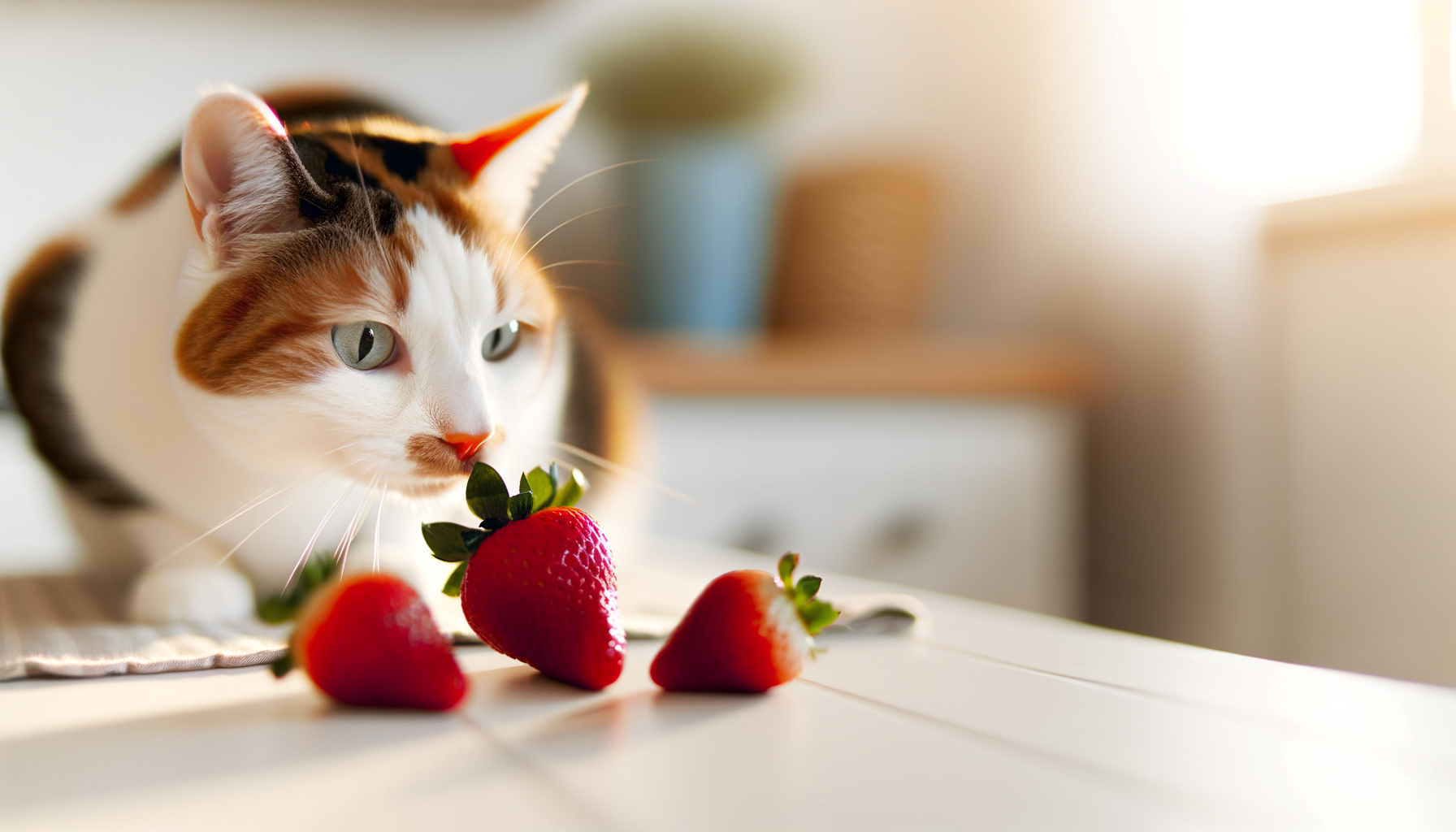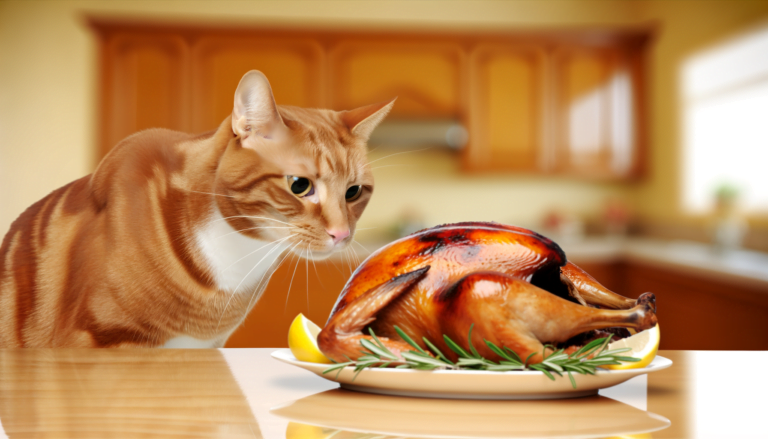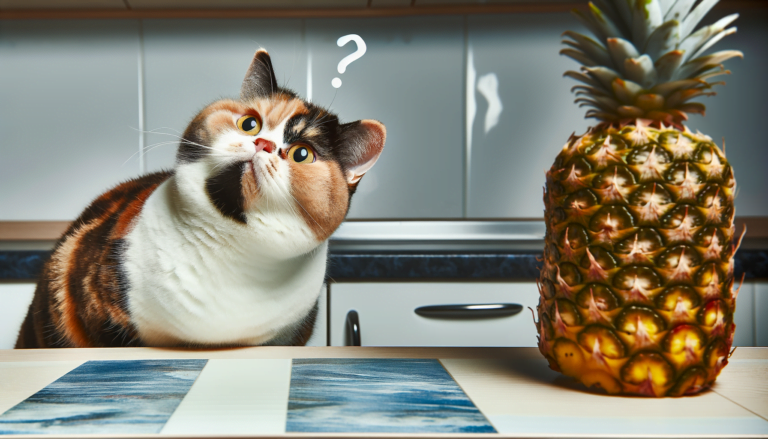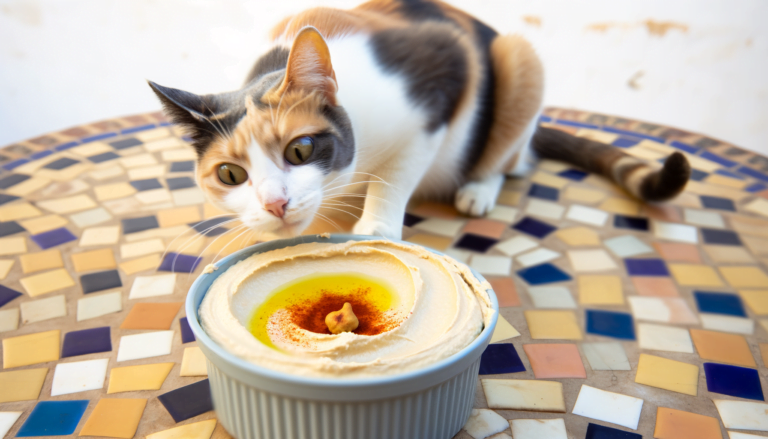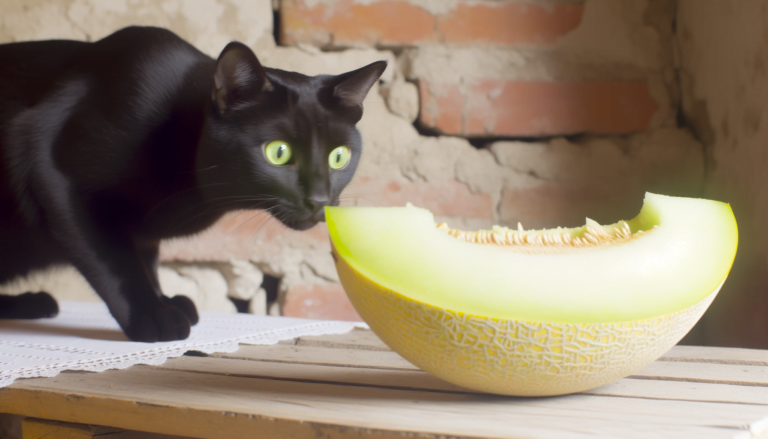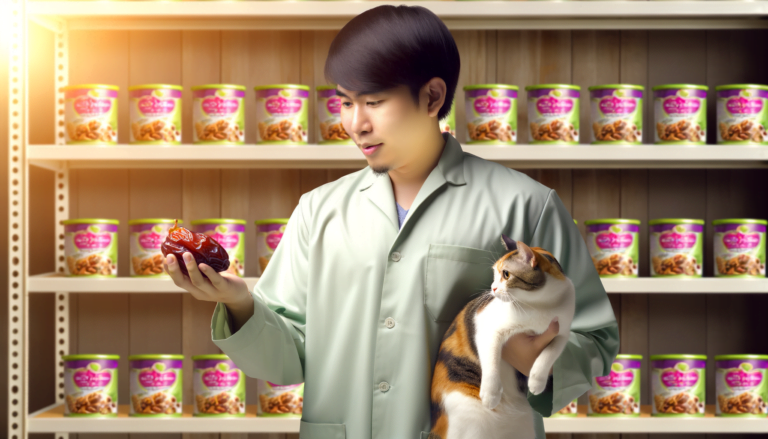Decoding a Cat’s Diet: The Truth about Cats and Strawberries
Yes, cats can indeed consume strawberries, although not as a staple in their diet. Strawberries, rich in vitamins and water, are non-toxic to cats and can offer a refreshing treat in small amounts. However, they should not replace a cat’s dietary requirements of proteins, as cats are primarily carnivorous creatures. Always ensure your feline friend’s nutritional needs are primarily met with appropriate cat food, and remember, introducing any new food, including strawberries, should be gradual to avoid upsetting their digestive system.
Potential Concerns and Side Effects of Cats Eating Strawberries
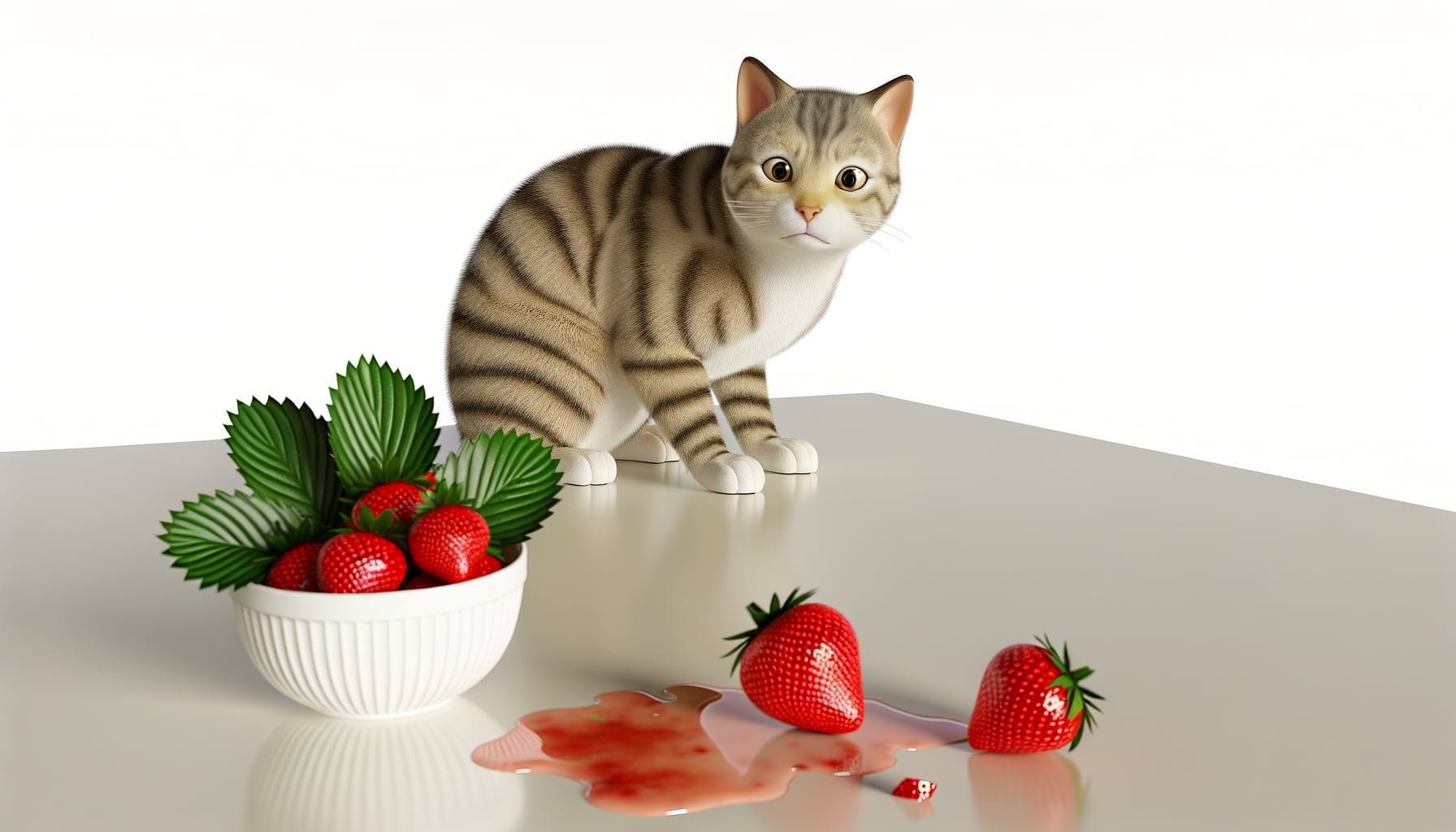
There exist several potential concerns and side effects that cat owners should keep vigilance over when feeding their feline companions strawberries. As obligate carnivores, cats have an innate preference for meat-based nutrition. Introducing fruits like strawberries into their diet might not be optimal for their health.
Firstly, strawberries are high in sugar, which could pose a risk, especially for diabetic cats or for those prone to obesity. Secondly, some cats might have difficulty digesting strawberries, causing gastrointestinal discomfort. Signs of this could include vomiting or diarrhea. If your cat exhibits these symptoms after consuming strawberries, it’s recommended to stop offering the fruit altogether.
It’s also evident to note that the small seeds on strawberries, harmless as they appear, could potentially lead to choking if the cat tries to swallow them whole. Therefore, it’s advisable to serve strawberries in smaller, deseeded pieces. Always remember, while strawberries can make for an occasional treat, they should not replace the primary, meat-based diet essential for cats.
How Much and How Often Can Cats Eat Strawberries?
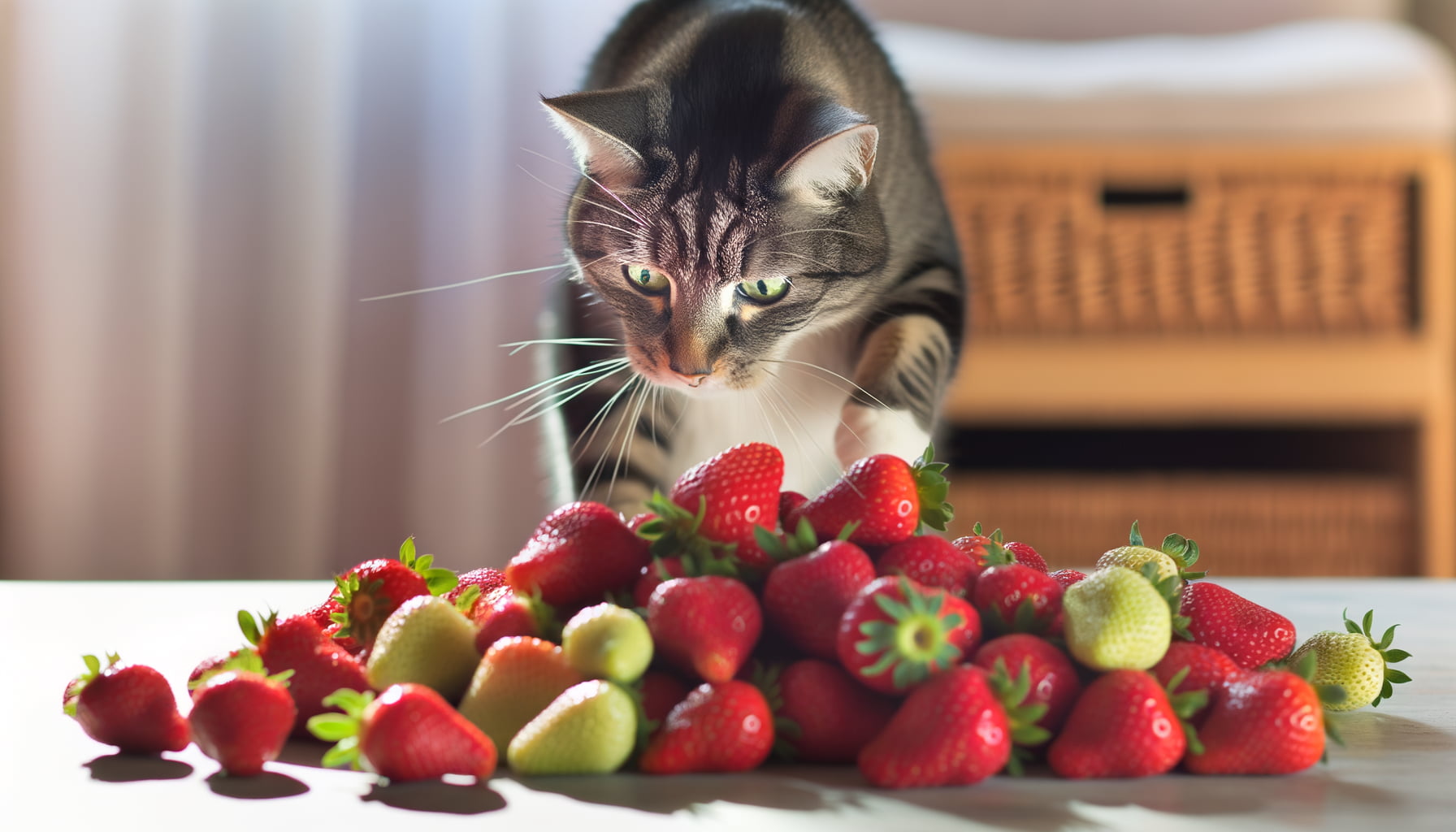
When considering how much and how often a cat can consume strawberries, it’s vital to keep moderation in mind. Cats can ingest small quantities of strawberries without harmful effects. However, as cats are obligate carnivores, their primary diet should be meat. Giving strawberries as a treat can be a refreshing change for your furry friend, but it should not replace a nutritious, protein-rich diet.
How often can a feline friend munch on these juicy, sweet fruits? Once again, it’s a matter of proportion. Exposing your pet occasionally, such as once a week, to small amounts of strawberries can be acceptable. Too much of this fruit, though, can disrupt their digestive system due to its high natural sugar content. Even without the appearance of a noticeable allergic reaction, frequent or high-volume consumption of strawberries could contribute to obesity in cats over time.
Every cat is individual, and what works well for one may not be suitable for another. Therefore, it’s crucial to observe your cat after giving them any new food for the first time. If any changes in behavior or physical condition occur, such as diarrhea, it’s best to stop providing strawberries and consult with a vet. Ultimately, for any adjustment in a cat’s diet, always seek professional guidance to ensure balanced nutrition and safety.
Understanding a Cat’s Dietary Needs
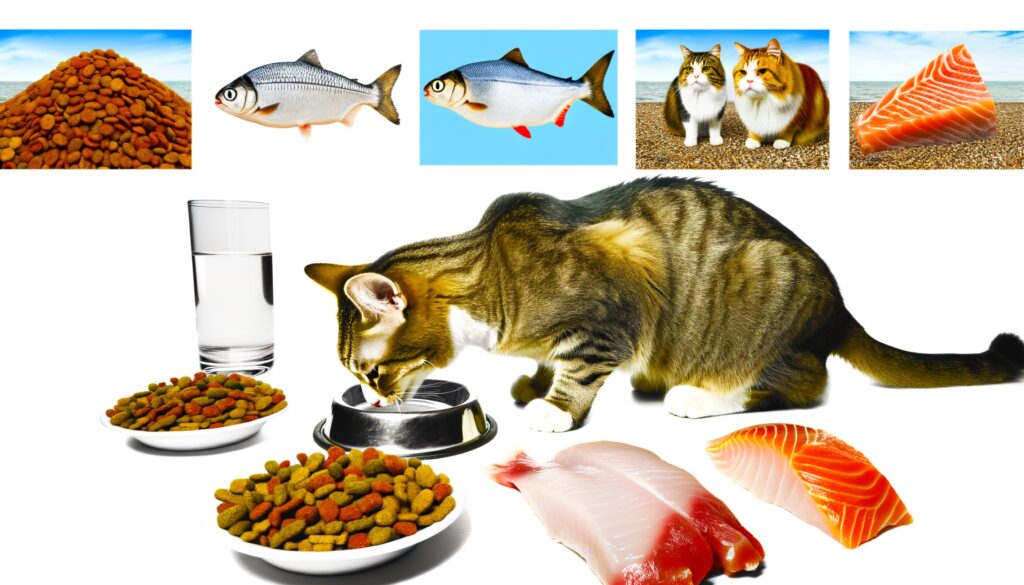
A cat’s dietary needs are unique and distinct from other domesticated animals. Unlike dogs, cats are obligate carnivores, meaning that they require a diet high in animal protein. Essential nutrients such as taurine, arachidonic acid, vitamin A, and vitamin B12, which are usually found in animal tissues, are of particular importance to meet their nutritional needs. These nutrients, found in abundance in meats, are deficient in plant-based diets or even in fruits like strawberries. It’s helpful to bear this knowledge in mind when considering introducing non-meat substances into your cat’s diet.
While cats are reliant on a protein-rich diet, it does not mean that all other food groups are injurious or irrelevant. Certain fruits and vegetables can supplement their diet by providing vitamins and dietary fibers, which help with digestion. However, these should be introduced in moderation and under the supervision of a veterinarian. Any novel addition to a cat’s diet needs to be balanced against their primary nutritional sources and requirements.
Moreover, the dietary requirements of cats can differ based on several factors, such as their age, health condition, lifestyle, and breed. Kittens, adult cats, and senior cats each have distinct nutritional needs, as do indoor and outdoor cats. Therefore, informed decisions around the dietary specifications of each cat are pivotal to ensure their overall health and well-being.
Can Cats Eat Strawberries – A Nutritional Look

Cats are known for their carnivorous nature, thriving on a diet primarily constituting of meat. However, married with curiosity, cats sometimes show interest in different foods, such as strawberries. Let’s dive into the nutritional aspect of strawberries for our feline friends.
Strawberries indeed provide certain nutritional benefits. They are rich in antioxidants and Vitamin C. However, cat’s unique dietary needs don’t mandate these nutrients as essential. Their bodies are adept at producing Vitamin C and, their main food, meat, generally provides the necessary antioxidants.
Providing strawberries to your cat won’t necessarily enhance their overall health, but it also won’t typically harm them as an occasional treat. As a nutritional supplement, strawberries rank lower for cats compared to other suitable fruits like melon or blueberries which are higher in fiber and moisture. However, moderation must always be practiced while adding any non-meat food to a cat’s diet. Balanced nutrition is key to their overall well-being.
Conclusion
Decoding a cat’s diet can be a fascinating journey, especially when it comes to unusual foods like strawberries. While cats may show interest in these fruits, it’s important to remember that they are obligate carnivores with specific dietary needs. As much as we may enjoy sharing our snacks with them, it’s crucial to prioritize their health and well-being by sticking to a balanced and appropriate diet.
Understanding the truth about cats and strawberries is just the beginning of a larger conversation about feline nutrition. By staying informed and consulting with a veterinarian, we can ensure that our beloved companions receive the best care possible. So let’s continue decoding the mysteries of our feline friends’ diets, one important piece of information at a time.
